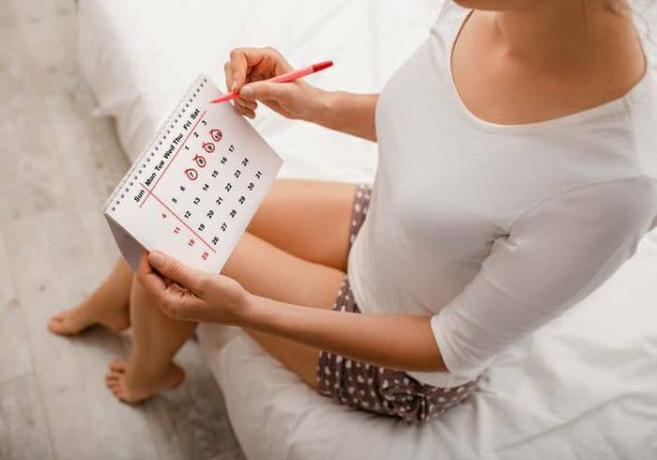Often, even for adult women, the question is, "How heavy are your periods?" is baffling. Meanwhile, there are clear signs that you are losing more blood monthly than normal.
How do you know if your period is heavy?
• menstruation lasts more than 7 days;
• clots of 1 cm or more stand out;
• the interval from the first day of the previous menstruation to the beginning of the next less than 3 weeks;
• pads or tampons need to be changed overnight;
• you need both a tampon and a pad at the same time to avoid leaks;
• if the tampon or pad is refilled every hour or two for several hours in a row;
• severe pain during menstruation, especially if there was none before.
It is also important to pay attention if blood appears in the interval between periods or if bleeding occurs a year after entering menopause.

Menstruation for more than 7 days is a reason to see a doctor urgently / istockphoto.com
By Mansfield-Voda-Jorgensen scale the profusion of bleeding is measured with pads or tampons:
• scanty (smearing) - 1-2 drops of blood on the pad or top of the tampon;
• very light - weak impregnation of a hygienic product with light / normal absorbency, change every 4 hours;
• light - incomplete soaking of a hygiene product with light / normal absorbency every 4 hours;
• moderate - change of a completely impregnated hygiene product normal every 3-4 hours;
• abundant - it is necessary to change a completely impregnated hygienic product of high absorbency every 3-4 hours;
• intense (heavy) - forced change of the hygienic super-absorbent product every 2 hours or less.
If you find that at least one of the points characterizes your menstruation, you should contact your gynecologist to identify and correct the cause.

Don't put up with painful critical days. This problem needs to be addressed / istockphoto.com
Why are heavy menstruation dangerous?
As a result of monthly blood loss with heavy menstruation, iron deficiency anemia develops. This is a common problem due to which you may feel unreasonable constant fatigue or weakness, memory impairment, and decreased concentration. In addition, dry and brittle hair, peeling nails, and pale skin are characteristic. Often women go to the doctor precisely because of weakness or because of the poor condition of the hair and nails, but not because of excessive menstruation.
Causes of heavy menstruation
Among the main reasons:
polyp;
coagulopathy (blood clotting disorder);
adenomyosis;
ovulatory dysfunction;
leiomyoma;
malignancy / hyperplasia (precancerous conditions and endometrial cancer);
iatrogenic (due to drug intake);
not classified.
In adolescent girls, the main cause of heavy menstrual bleeding is immaturity of the reproductive system.
Before the cause of heavy menstruation is identified and the treatment tactics are selected, various hygiene products have been developed for the comfort of women these days.
In addition to the well-known night pads, you can also use menstrual night panties for volume. hips up to 100 cm, and extra-long pads that can provide peace of mind and confidence on days menses.
It will also be interesting for you to read:
9 Ways to Ease Critical Days: A Women-Only Cheat Sheet
Why critical days become torture

